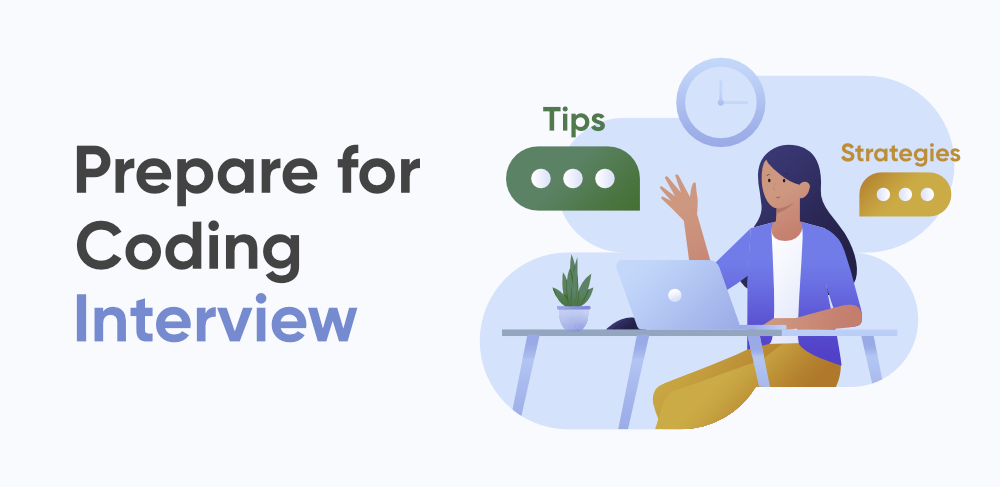It is very likely that when you get into college you will find seniors who tell you that there’s a lot of time for you to prepare for your placements and that you should focus right now just on making new friends, opening up, joining college groups, organizing fests, and enjoying each second. While it is undeniable that the first year of engineering college in India is something that immensely adds to your memories and you should not at all miss on the fun part, at the same time to bag some great results you also need to save a few hours daily and start preparing yourself for the tech interviews which you will have to face as soon as you reach second year of your college to secure an internship.
So amidst the chaos of fun and pressure, you need to find a balance. And usually, due to the lack of correct guidance, it becomes very difficult for freshers to start working on a good tragedy. But you need to worry no more! We thrive to help you with correct guidance in this article to get you started for your tech interviews right from your first day of college in 2023. So without any further delay let us get you started with the article.
1. Find a balance between studies and fun as a fresher in the college
You can succeed academically and have a great time in college if you can strike a balance between having fun and studying. You might find it challenging to keep up with your coursework and earn the grades you need to succeed if you put too much emphasis on having fun and neglect your studies. On the other hand, if you put too much emphasis on your studies and neglect to schedule time for leisure, you risk feeling overworked, stressed, and burned out. Finding a balance between fun and studying is crucial.
To achieve this, prioritize your tasks and set aside specific time for both activities. You can set aside a few days of the week to work on your skills and enjoy others expanding your network and participating in extra-curricular activities, or just hang out with friends.
2. Find a correct learning path to follow
Although today there are already tonnes of YouTubers and educators who will help you get started with your coding journey and guide you through, it is very important to not get puzzled by multiple learning paths.
First things first, learn a programming language. Learn about how computers work, and how a computer program works. Learn about basic programming concepts like Input, Output, Branching Statements, Conditional Statements, Loops, Keywords, Tokens, Identifiers, ASCII Codes, etc. Practice these concepts to get a good firm grip on the syntax of the language and the basic logic building. Start solving basic problem-solving questions on websites like GeeksForGeeks, CodeChef, Hackerrank, InterviewBit, etc which will really prove to be helpful in a Java test online.
Keep learning mathematical concepts important for computational problem solving like differential and integrational mathematics, probability, and statistics, and discrete mathematical principles like Pigeonhole Principle, Combinatorics, Set Theory, and Graph Theory, while learning the programming fundamentals.
3. Data Structures and Algorithms are a must to add to your toolkit
The next major concepts you would want t have a good firm grip on are Data Structures and Algorithms. Learning Data Structures and Algorithms, helps you build your logic-building abilities to come up with an optimized solution to a problem amidst given constraints in an interview. The foundation of computer science is made up of data structures and algorithms, which are essential for creating effective software. Data structures and algorithm-related interview questions are common during technical rounds for software engineering positions. Understanding these subjects thoroughly can help you get ready for interviews and improve your chances of getting hired. From web development to scientific computing, a wide range of real-world applications use data structures and algorithms. You can design and implement more effective software solutions by comprehending these concepts.
Start learning the Linear Data Structures first by learning Arrays, Linked Lists, Stacks, and Queues. Learn how basic operations like adding and removing elements, and finding the size of the collection of elements work in these data structures. It is also important to know your tools well and find out in which case you can use which of the Data Structures.
Once you have a firm grip on these basic Data Structures, start learning about Searching and Sorting algorithms and their Time Complexities. These algorithms are quite useful in coding interviews.
Now, hop on to learning fun techniques like Divide and conquer approach, Master Theorem, Recursion, Dynamic Programming, etc., and about mathematical algorithms like Kadane’s Algorithm, Dutch National Flag Algorithm, Floyd’s Cycle Detection Algorithm, etc.
Finally, you are fully prepared to start learning about the non-linear data structures like Binary Search Trees, Graphs, Heaps, Hashed Maps, Tries, and advanced algorithms related to them. Practice more and more problems to explore their use cases, and how you can tweak them around to solve the given problems in the programming tests.
4. Keep a check on the important subjects that you need to learn for coding interviews
There will only be a few of the subjects in your academia which you need to focus more on for the coding interviews. It is important to know about these subjects in advance and learn concepts related to them in college classes itself so that you don’t have to put extra effort and additional time to learn them before your interviews. These subjects are Discrete Mathematics, Object Oriented Programming, Computer Networks, Cyber Security, System Design, and Operating systems.
For the final touch-up, you can hop onto Mercer | Mettl and practice for the coding interviews in a simulated environment. Mercer | Mettl is one of the most frequently used online coding platforms used by big tech companies to host hiring tests. Get used to their coding environment and practice questions asked in real-life interviews.




Be First to Comment